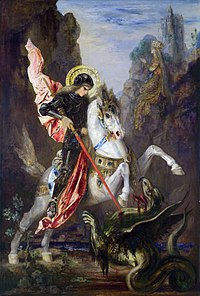 The globe theater. That's where Shakespeare put on his plays. It has a kind of interesting history, originally Shakespeare rented the land that the theater was built on, when he wanted to buy it the land owner said no (he was making a lot of money off of it.) Shakespeare shrugged and moved the theater - literally relocated it.
The globe theater. That's where Shakespeare put on his plays. It has a kind of interesting history, originally Shakespeare rented the land that the theater was built on, when he wanted to buy it the land owner said no (he was making a lot of money off of it.) Shakespeare shrugged and moved the theater - literally relocated it. People going to see plays during Shakespeare's era were a lot more involved in the showing than a lot of Shakespeare 'fans' are now when they just read it. The globe theater jutted out into the stage so that the actors were constantly interacting with their adience. As well as simply being surrounded on all sides on the stage, actors also walked through the crowd, acting out parts of the play in the pit amongst the viewers.
I went to a viewing of Hamlet at the Shakespeare Festival last summer and thought it was fascinating. Actors actually ran up and down the isles between chairs, one even came down and sat one someone's lap!
Here's a documentary I found about the globe theater. It's kind of long but has some really great information in it . . .
There's a lot of great ways to enjoy and learn from Shakespeare, but the theater is really fun. What's really great about Shakespeare is that he still is performed (over, and over, and over again.) It gives you a completely different feel for the plays when you see them performed like they were intended - its fun.
